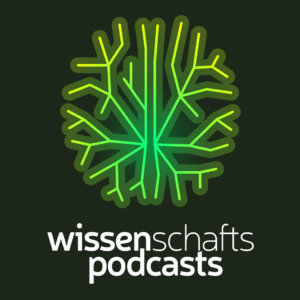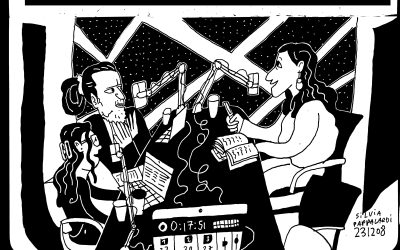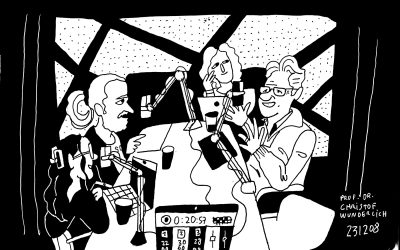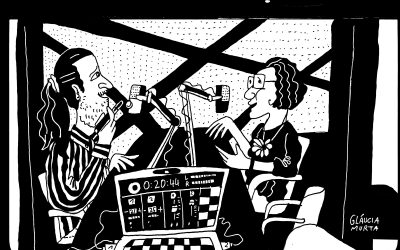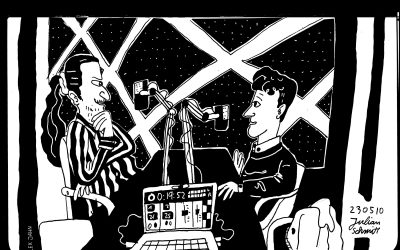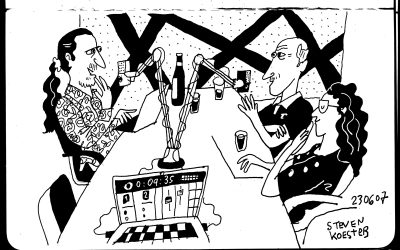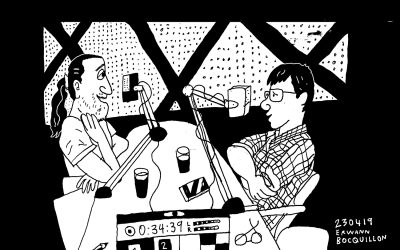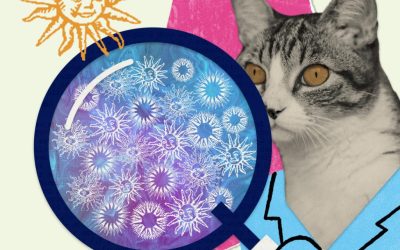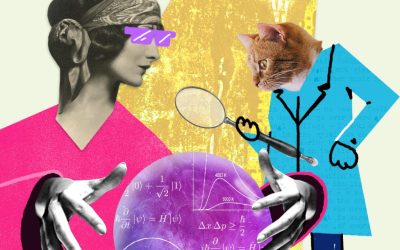Podcast
ML4Q&A
Nature is fascinating and so is physics let alone quantum physics! Join us as we delve into the lives of scientists and the complexity of their research topics. Grab a drink, hop on a bus or go for a walk and listen to the many different stories about being a scientist and basically doing something for a living only a few can understand.
Our guests are all involved in the research mission of ML4Q, a German consortium dedicated to develop the best hardware platform for quantum information technology, and provide comprehensive blueprints for a functional quantum information network.
FOLLOW ON Apple Podcasts – Google Podcasts – Spotify – Deezer – Podigee
FOLLOW USING mp3 feed – opus feed – AAC feed – vorbis feed
ALSO ON Wissenschaftspodcasts
Understanding quantum chaos over a glass of Campari – ML4Q&A with Silvia Pappalardi
In this episode Mira and Chris talk to Silvia Pappalardi, who joined ML4Q as a junior professor in April 2023. Silvia heads the Qhaos group (spelled with a Q) and introduces our listeners to the topic of quantum chaos which might be a bit intimidating for many...
ML4Q&A with Christof Wunderlich on Ion-Trap Quantum Computing
In this episode Chris introduces Mira Sharma, his co-host of the show. Mira is a PhD student at IQI in David DiVincenzo's group. This is their first co-hosted episode, so it is an experiment.For today’s episode Chris and Mira left the cluster bubble on a...
Gláucia Murta guest on ML4Q&A in latest podcast episode
In this episode Chris talks to Gláucia Murta, a postdoc in ML4Q, who won the cluster's Young Investigator Award. They talk about Gláucia’s passion for fundamental questions, device independence and a great outreach project, the podcast O Q Quantico she...
New podcast episode with Julian Schmitt
In the podcast's last episode in 2023, Chris talks to ML4Q member, Julian Schmitt, leader of the junior research group “Quantum fluids of light” at the University of Bonn. Julian recently received an ERC Starting Grant, the ML4Q Independence Grant. In 2022 he...
ML4Q&A with Steven Koester – listen to our first external guest from the Global Quantum Leap program!
We are excited to have our first external guest on the show. Steven Koester, Professor of Nanotechnology in the Department of Electrical and Computer Engineering at the University of Minnesota, is joining us mainly as the Director of the Global Quantum Leap...
Erwann Bocquillon speaks on ML4Q&A
One central milestone in the cluster's mission is the attraction of excellent young talents in the highly dynamic field of quantum computing. This was achieved in the last few years by the establishment of several professorships at all cluster sites. Newly...
More physics podcasts
The OQ Quântico podcast makes quantum mysticism a gateway to scientific debate. Guests include researchers in physics, mathematics, philosophy and communication. In 7 episodes, the podcast team guides the listener through the main concepts of quantum theory, bringing science to confront misinformation.
Gláucia Murta guest on ML4Q&A in latest podcast episode
In this episode Chris talks to Gláucia Murta, a postdoc in ML4Q, who won the cluster's Young Investigator Award. They talk about Gláucia’s passion for fundamental questions, device independence and a great outreach project, the podcast O Q Quantico she...
Learn how quantum theory came to be in the second episode of O Q Quântico
Learn how quantum theory came to be in the second episode of O Q Quântico I have a theory is the title of the second episode of the OQ Quântico podcast which aims to guide the listener in 7 episodes through the main concepts of quantum theory, bringing science...
The more quantum, the better – the first episode of O Q Quântico is out now
The more quantum, the better O Q Quântico's first episode discusses science and pseudoscience The first episode of the OQ Quântico podcast was released last week and discusses the concept of science and what differentiates it from pseudoscience. The hosts, Lu,...
